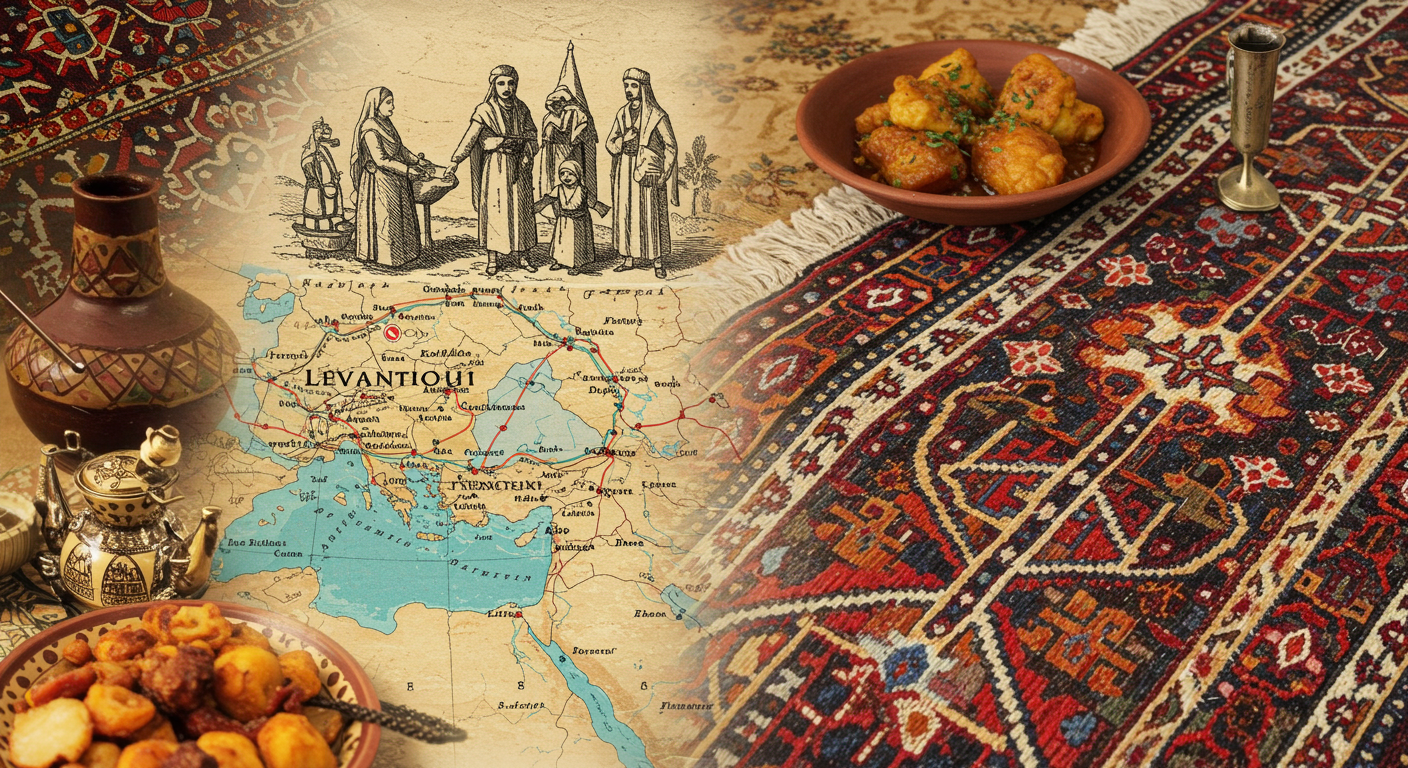Words often carry layers of meaning shaped by history, geography, and culture. One such fascinating word is levantului. Although it may appear simple at first glance, levantului connects deeply to tradition, symbolism, and heritage, making it more than just a term. Across generations, it has been tied to identity, expression, and cultural narratives that continue to hold value today.
In this article, we will explore what levantului means, where it originates, its cultural significance, how it has been used historically, and why it remains relevant in modern times.
What is Levantului?
The word levantului originates from the broader concept of the Levant, a historical term often used to describe regions of the Eastern Mediterranean. Levantului, however, carries a distinct identity. It is associated with traditions, stories, and expressions passed down through language and culture.
More than a geographic reference, levantului often represents ideas tied to heritage, beauty, and the richness of life. Its meaning varies depending on context, but it consistently reflects something symbolic, rooted in cultural identity.
Historical Roots of Levantului
To understand levantului, it’s important to trace its historical context. For centuries, the Levant has been a crossroads of civilizations—home to trade routes, art, religion, and storytelling. From these interactions, levantului emerged as a term that preserved fragments of history, carrying echoes of shared human experience.
Whether in literature, oral traditions, or folk practices, levantului symbolizes continuity. It links the past with the present, reminding people of their roots while adapting to modern interpretations.
Cultural Significance of Levantului
A Symbol of Heritage
At its heart, levantului is a symbol of heritage. It embodies traditions passed from one generation to the next, often tied to family rituals, artistic practices, or symbolic meanings that shape cultural identity.
In Literature and Poetry
Levantului frequently appears in poetry and artistic works. Writers have used the term to express nostalgia, beauty, and a connection to something greater than the individual. Its poetic nature makes it resonate deeply with readers and listeners alike.
In Everyday Expression
For many communities, levantului is not just a word—it’s a way to express emotions, values, or shared experiences. Its use in language reflects the pride of cultural continuity.
Levantului in Modern Context
Although its origins are historical, levantului remains relevant in today’s world. Modern writers, cultural organizations, and even educators use it to spark discussions about identity and belonging. In contemporary culture, levantului is often celebrated as a bridge between old traditions and new ideas.
Its adaptability ensures that even in a rapidly changing society, levantului retains meaning and relevance. It speaks to people who value roots, heritage, and the lessons of the past while looking forward to the future.
Levantului and Symbolism
One of the most intriguing aspects of levantului is its symbolism. Depending on context, it can represent:
-
Beauty and Growth: Associated with flourishing traditions and cultural prosperity.
-
Connection: Linking communities across borders and generations.
-
Memory: Serving as a reminder of the past, especially in artistic or literary works.
-
Resilience: Reflecting the ability of cultures to endure and thrive despite challenges.
Because of its layered symbolism, levantului is often used in ceremonies, writings, and stories that highlight cultural strength and continuity.
The Role of Levantului in Identity
For many people, levantului plays a role in personal and collective identity. It is not simply a word but a marker of belonging. Through songs, poems, traditions, or even casual use, it helps reinforce a sense of who people are and where they come from.
In diaspora communities, levantului often carries even more weight. It serves as a link to ancestral lands and shared cultural experiences, reminding individuals of their roots no matter how far they may travel.
Preserving Levantului for Future Generations
Like many cultural expressions, levantului faces challenges in preservation. Globalization and rapid modernization sometimes push traditional words and practices into the background. Yet, preserving levantului is essential for cultural diversity.
Efforts to keep it alive include:
-
Educational Programs: Teaching younger generations about the history and meaning of levantului.
-
Cultural Festivals: Highlighting traditional expressions in art, dance, and storytelling.
-
Literary Works: Writers continuing to use levantului in novels, poetry, and essays.
-
Digital Archives: Documenting meanings and practices associated with the word for global audiences.
Why Levantului Still Matters
In a fast-paced world, people often look for anchors—symbols that ground them in something meaningful. Levantului serves as one of those anchors. It reminds us of the power of tradition, the importance of heritage, and the value of passing on culture to future generations.
By embracing communities strengthen their identity while inviting others to appreciate the richness of diversity. It is a term that goes beyond language and becomes a celebration of resilience, history, and shared humanity.
Conclusion
Levantului is more than just a word—it is a cultural treasure. Rooted in history and layered with meaning, it symbolizes heritage, memory, and continuity. From literature to modern discussions of identity continues to inspire and connect people across generations.
As the world evolves, preserving the significance of ensures that cultural traditions remain alive and meaningful. In embracing we honor the past, celebrate the present, and prepare for a future that values diversity and shared human experience.

